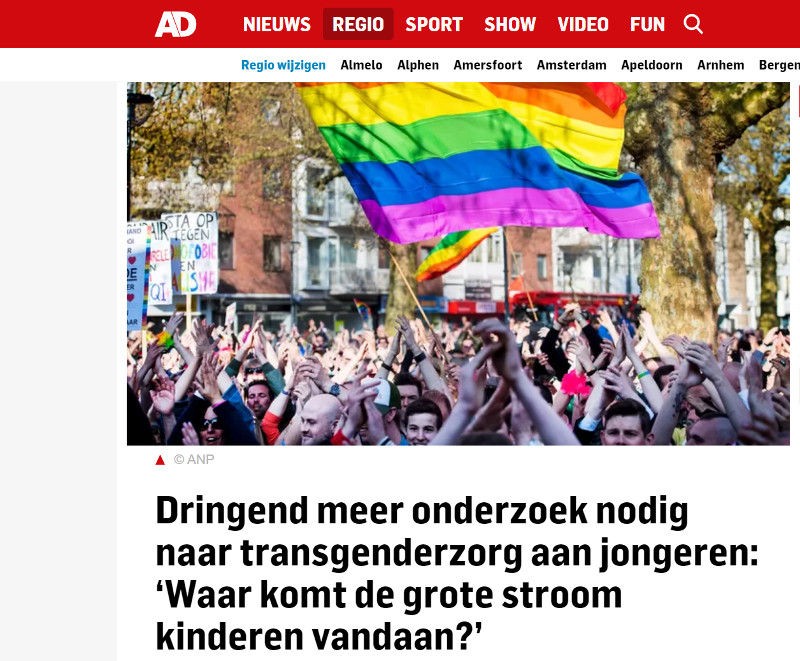More research is urgently needed into transgender care for young people: ‘Where does the large flow of children come from?’
Thomas Steensma, Dutch researcher into gender treatments and one of the co-authers of the so-called ‘Dutch Protocol’ has expressed concerns that existing research is an insufficient basis upon which current pathways used to treat adolescents are founded.
These concerns were reported in a Dutch Newspaper:
Translated into English, the article says:
More research is urgently needed on gender reassignments in young people under the age of 18. Doctors who provide transgender care in Nijmegen and Amsterdam say they know too little about the target group and the long-term effects. In the meantime, they feel pressured by the long waiting lists. “All the research out there comes from ourselves.”
Thomas Steensma of the Center of Expertise on Gender Dysphoria at Amsterdam UMC says “More research is really needed, and very much needed.”
Because where does the large flow of children come from who have suddenly registered for transgender care since 2013? And what is the quality of life like for this group long after the sex change? There is no answer to those questions.
“We don’t know whether studies we have done in the past can still be applied to this time. Many more children are registering, and also a different type, ”says Steensma. Suddenly there are many more girls applying who feel like a boy. While the ratio was the same in 2013, now three times as many children who were born as girls register, compared to children who were born as boys.
We conduct structural research in the Netherlands. But the rest of the world is blindly adopting our research.
Thomas Steensma, Center of Expertise on Gender Dysphoria at Amsterdam UMC
The explosive rise in requests in transgender care simply requires a new investigation. Around 2010, about 150 to 200 transgender people were seen every year in the Amsterdam UMC. Now there are 775, with a two-year waiting list on top. The research on that small group of people from before 2013 may not apply to the large group that there is now. And here the help of other countries is also needed. “We conduct structural research in the Netherlands. But the rest of the world is blindly adopting our research. While every doctor or psychologist who engages in transgender care should feel the obligation to do a good before and after measurement. ”
It is still unclear whether those administered cross-sex hormones, boys and girls, have their fertility affected. “We just don’t know,” says Steensma. “Little research has yet been done on the treatment with puberty inhibitors and hormones in young people. That is why it is also seen as experimental. We are one of the few countries in the world that conducts ongoing research into this. In Great Britain, for example, a study has only now been published, for the first time in all these years, on a small group of transgender people. This makes it so difficult, almost all research comes from ourselves. ”

